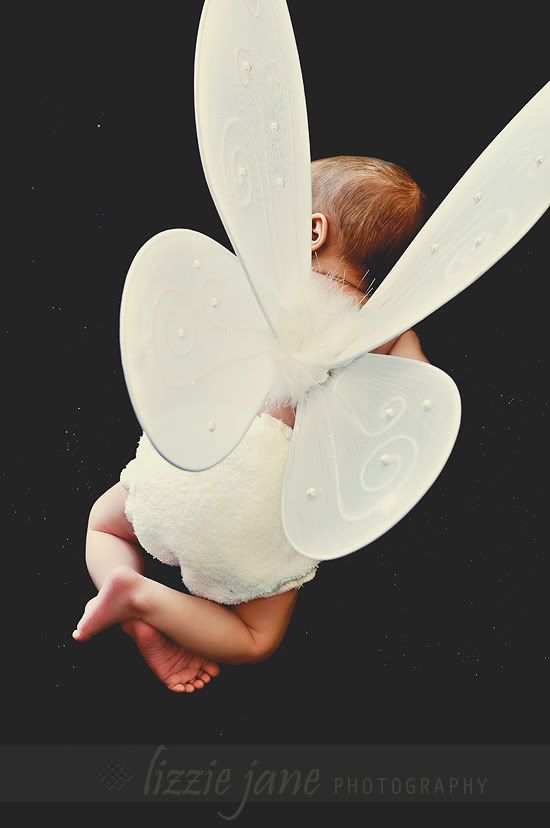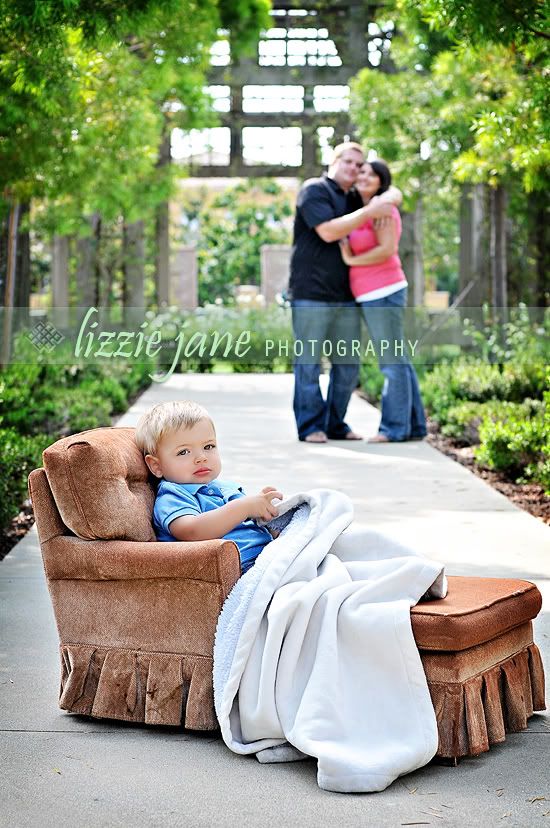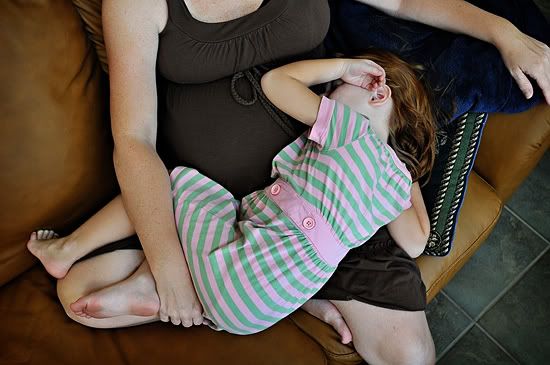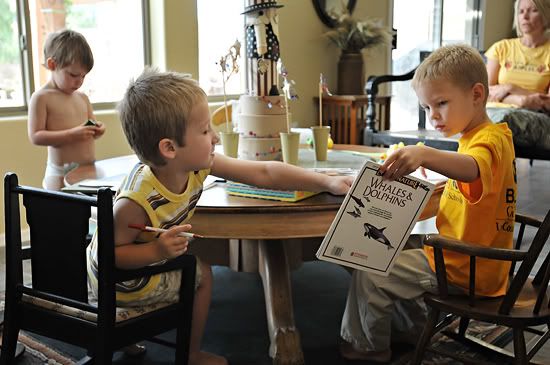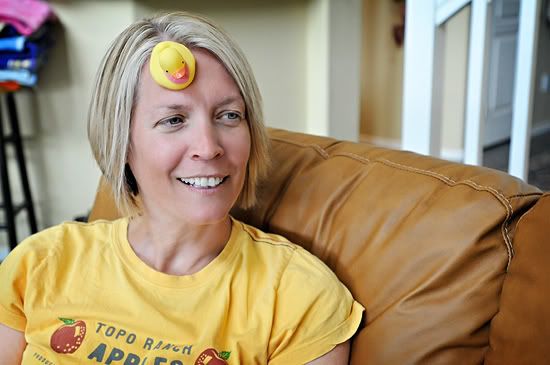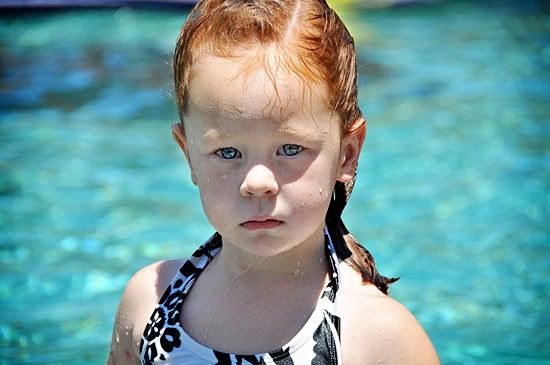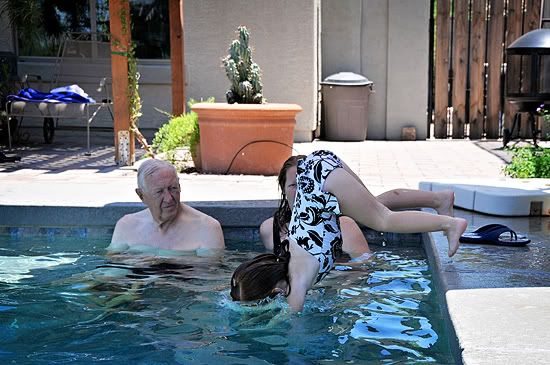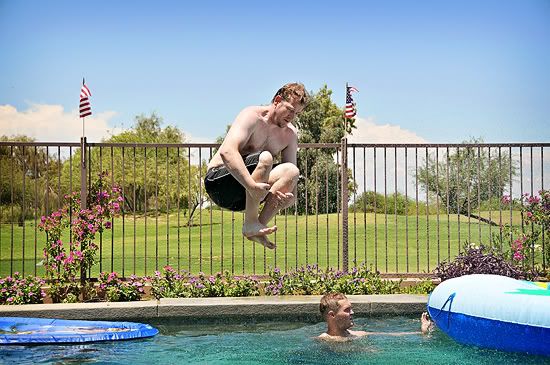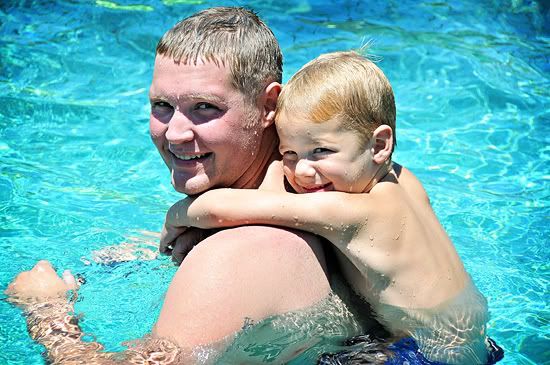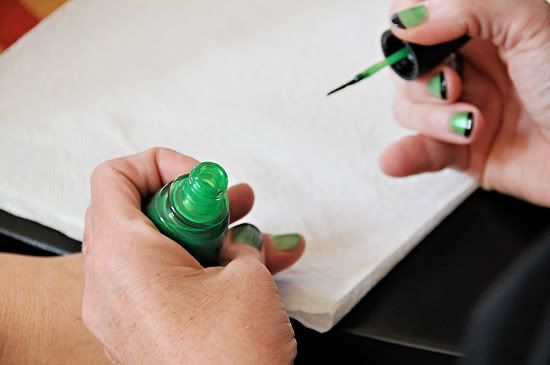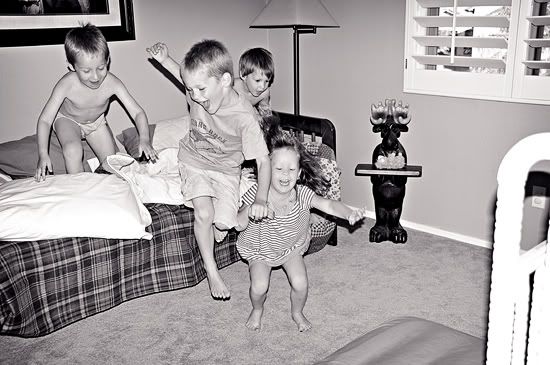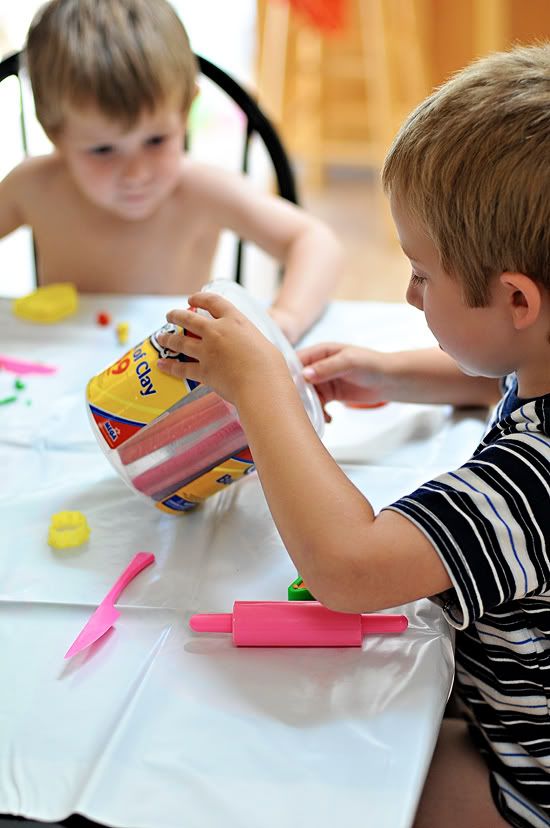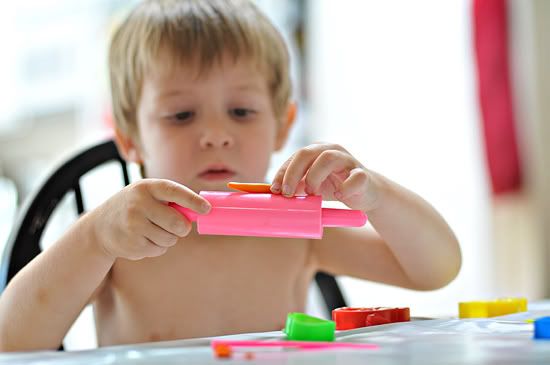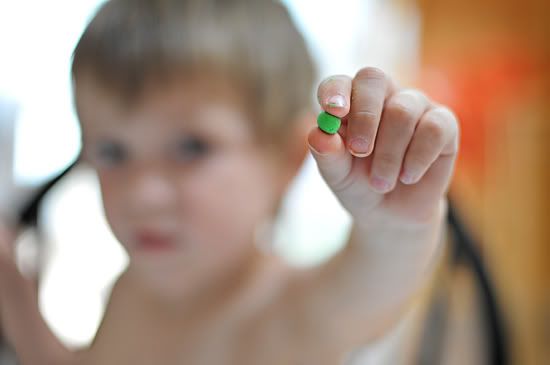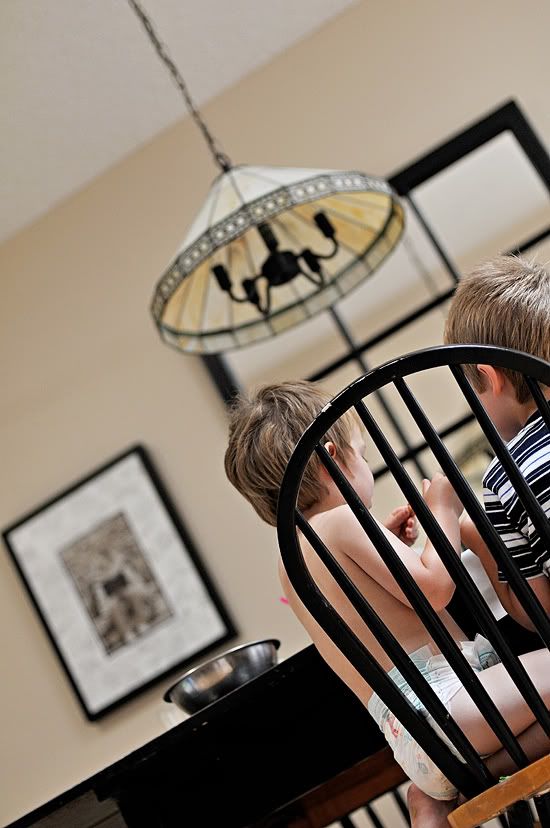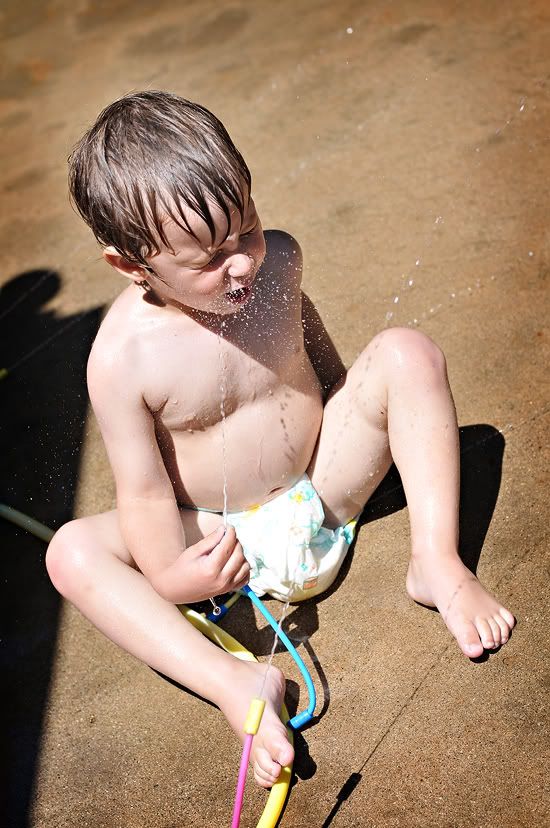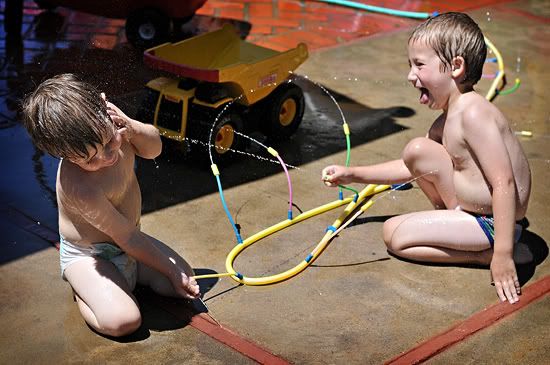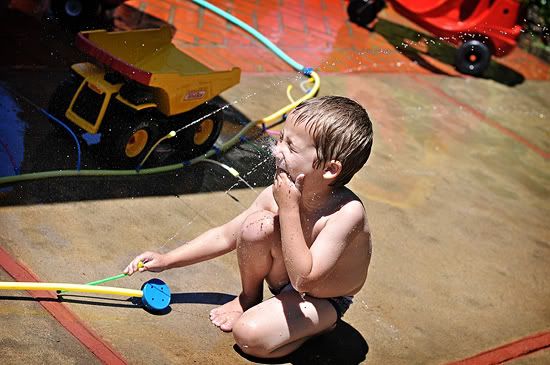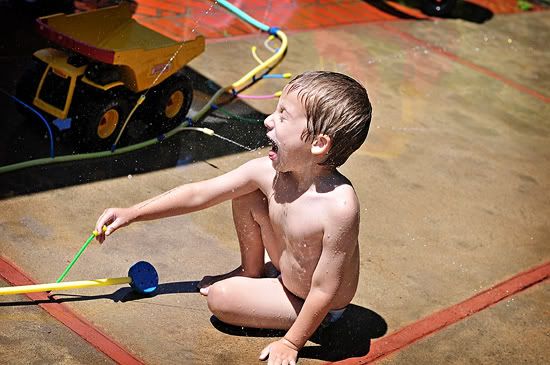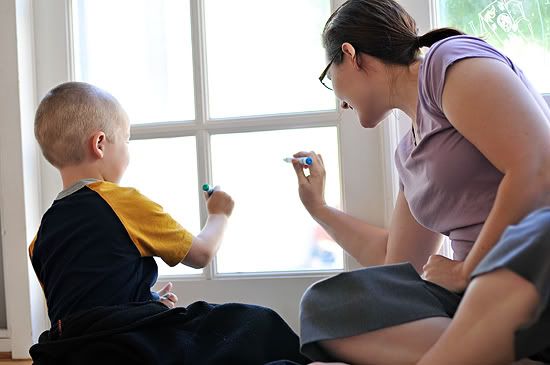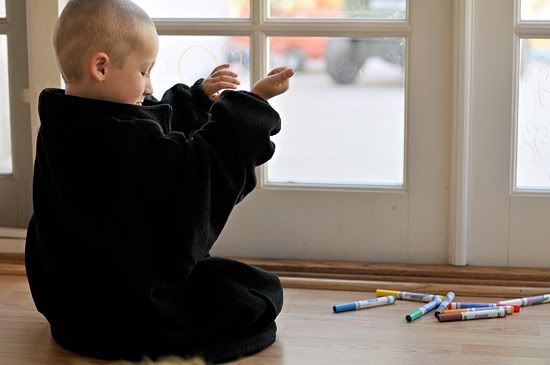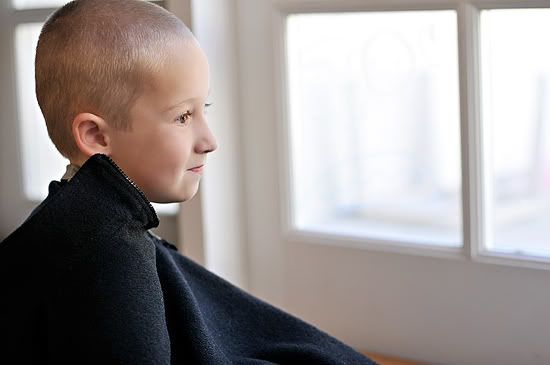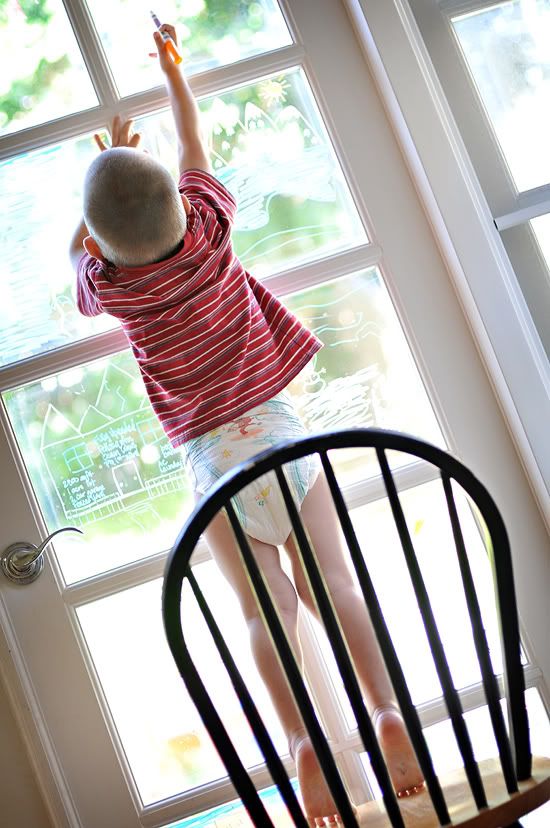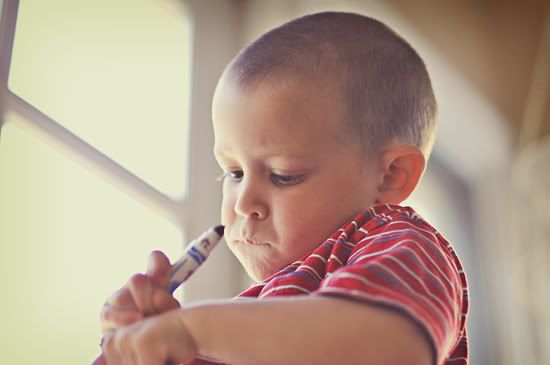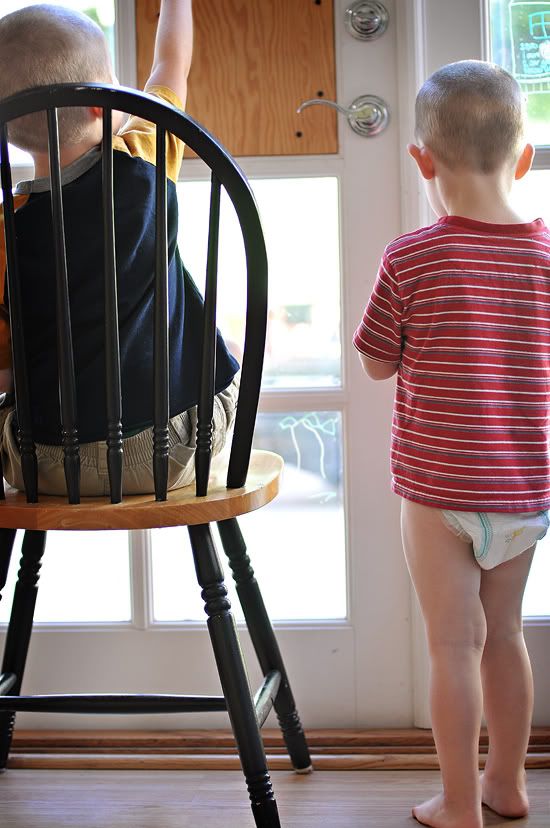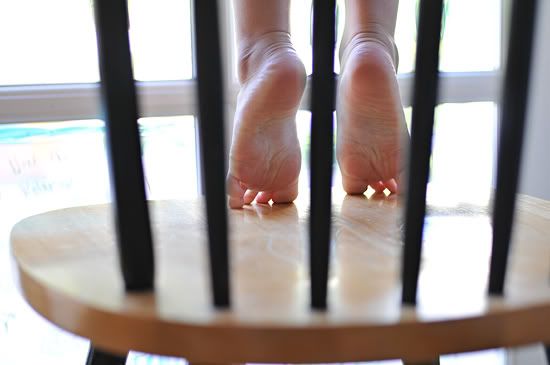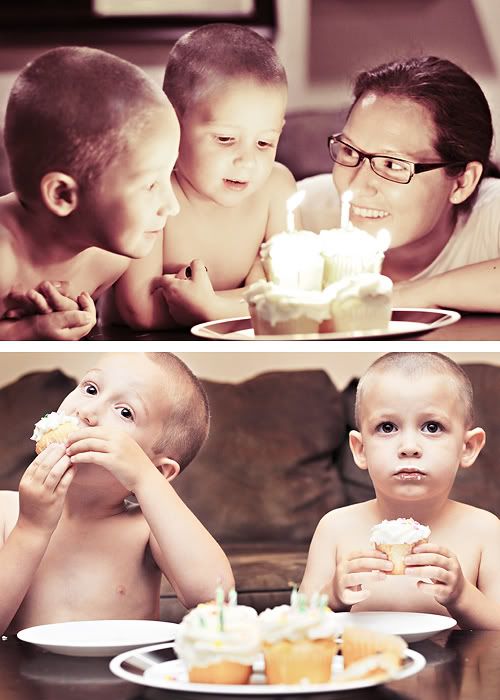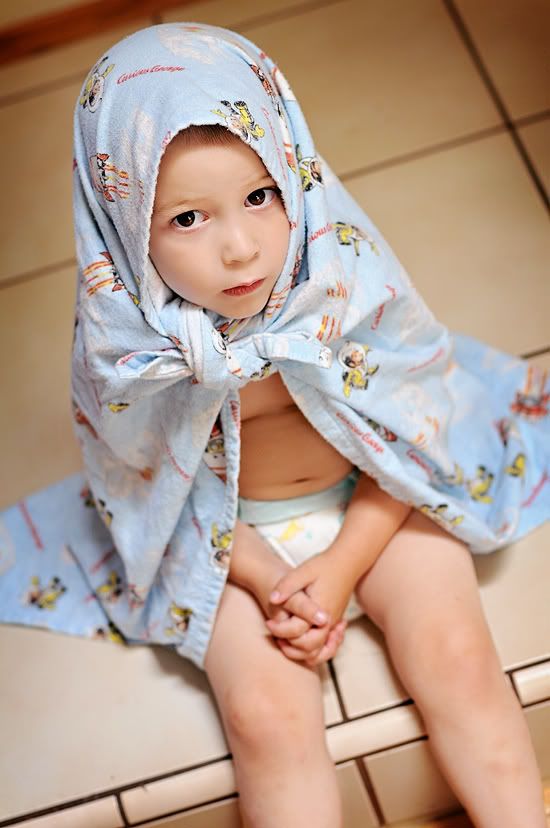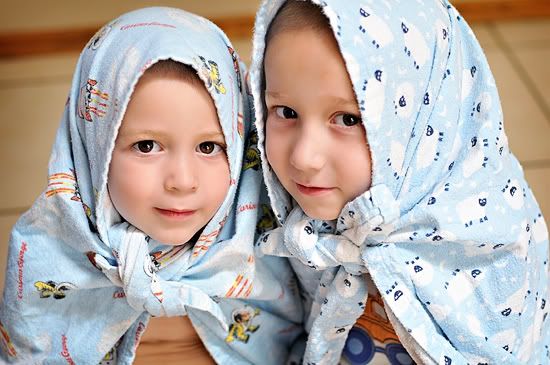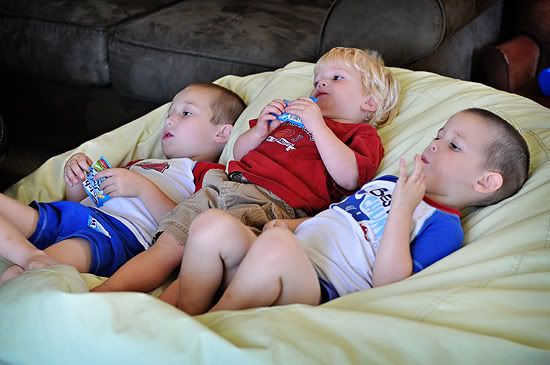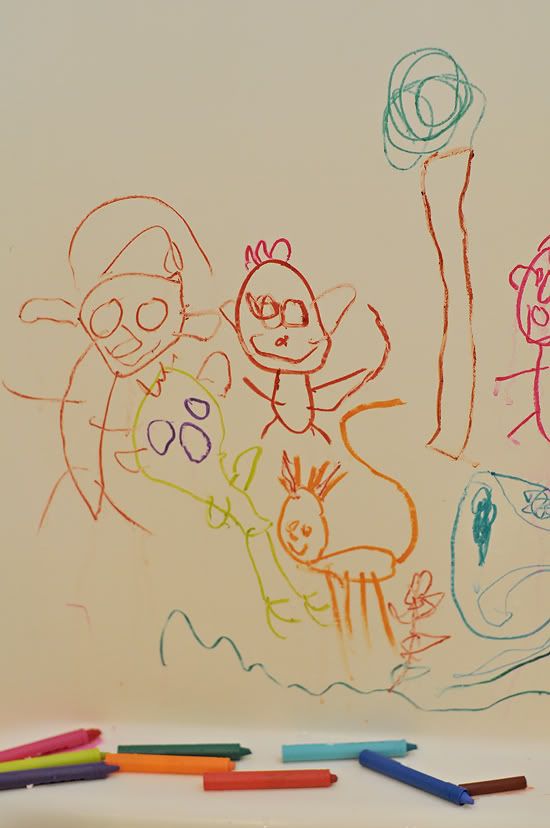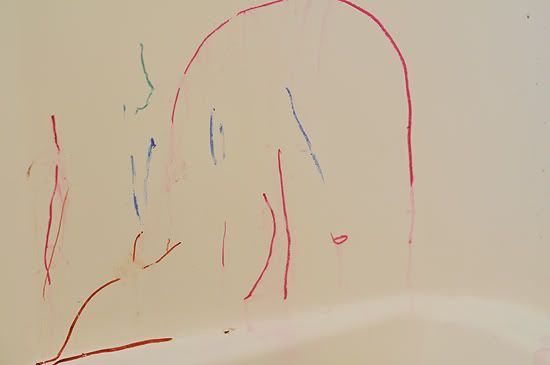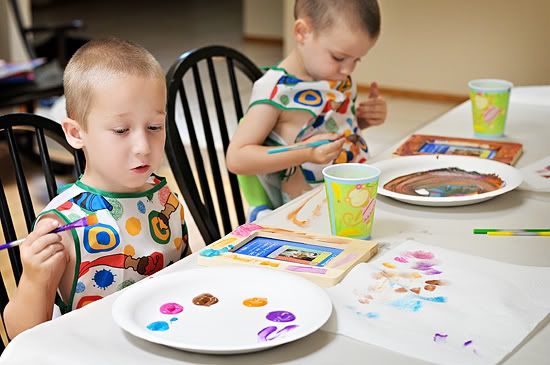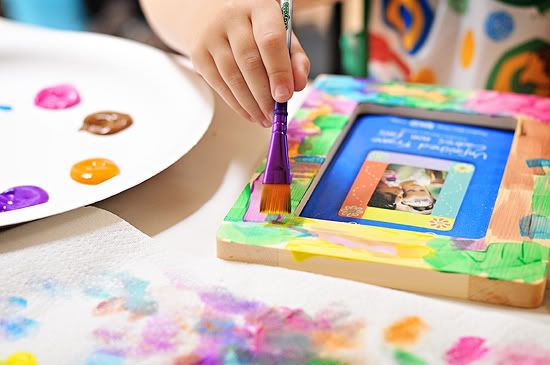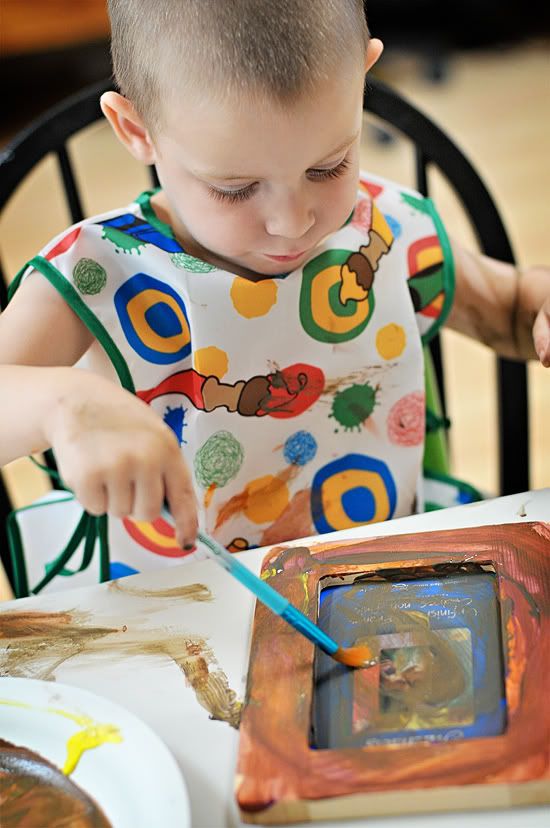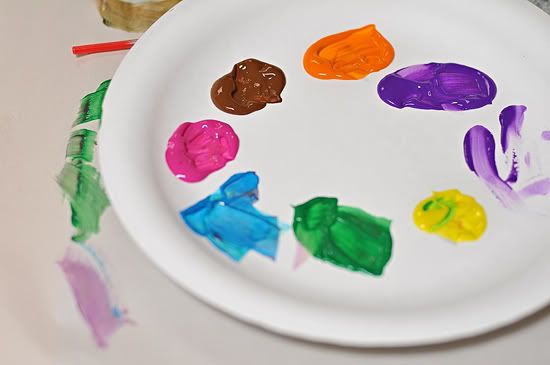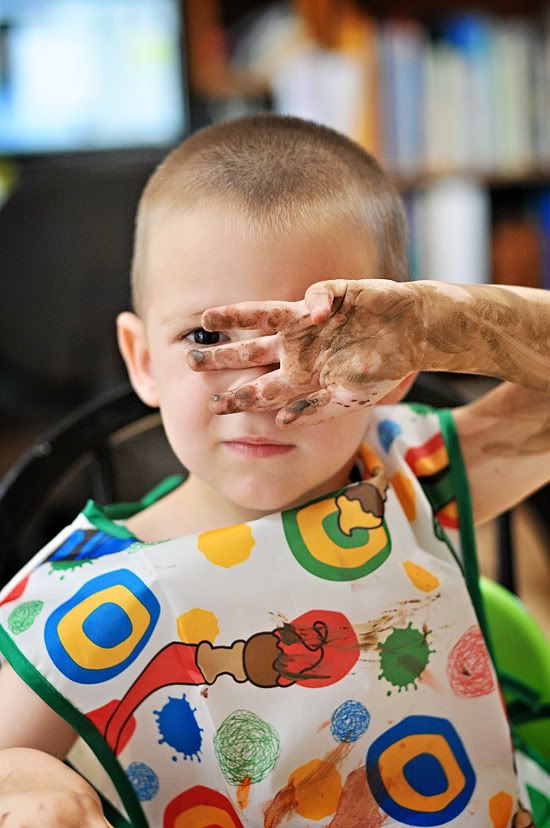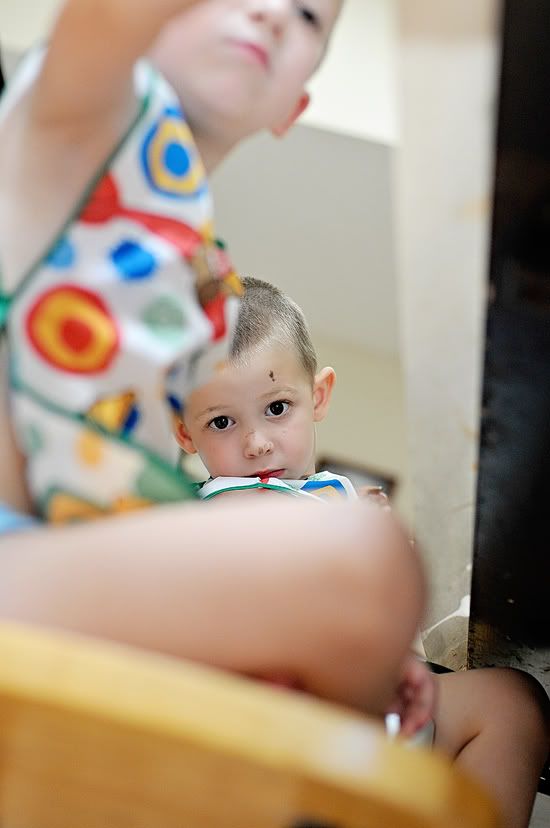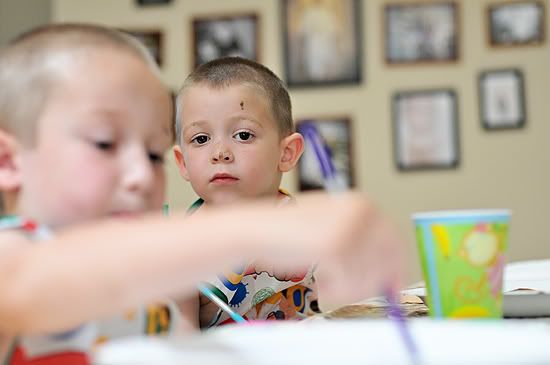The other night I had nothing to read before bed. I am still waiting (rather impatiently now) for my book club read, The Zookeepers Wife, to arrive from Half.com. This potential habit-breaking disaster (a bookless evening) set my heart to racing and my palms to sweating (never a good thing for someone with chronic eczema). So what did I pick up in order to satisfy this literary obsession? Twilight, of course. You see, along with our book club meeting this next month, we are having a little Twilight party to watch the movie with those in the book club who have not yet seen it. I thought I'd give myself a bit of a refresher course. Heaven knows I had plenty of time before the party. Well, this was two nights ago and I am now well into the third book of the series, Eclipse. You can imagine how that leap was accomplished. Let's just say my kids have had plenty of time for imaginative play while their mother has immersed herself (for the third time, I might abashedly add) in the story of Bella, Edward, and Jacob and their vampire and werewolf families.
So what is it about these books that appeals so strongly to female readers? I qualify that question with gender specification because I have yet to hear of a man who read the Twilight series more than once, went to book clubs, or planned parties or events or movie viewings with large groups of friends. This cult seems to be wholly owned by the estrogen camp. But what is it about Twilight that truly grips women? What is it that draws us in? And, in my case at least, what draws me in against my better judgment? I like the books, but I've never been able to say that I love them. However, as evidenced by the last two and a half days, I am just as easily captivated by them as anyone else. And part of me hates that.
What don't I like? Well, here's an example of a passage that really irritates me:
"Welcome home," I said while his cold lips pressed under my jaw. "I'm glad you came back."
"That's a very good thing."
"Mmm," I agreed, tightening my arms around his neck.
His hand curved around my elbow, moving slowly down my arm, across my ribs and over my waist, tracing along my hip and down my leg, around my knee. He paused there, his hand curling around my calf. He pulled my leg up suddenly, hitching it around his hip.
I stopped breathing. This wasn't the kind of thing he usually allowed. Despite his cold hands, I felt suddenly warm. His lips moved in the hollow at the base of my throat.
"Not to bring on the ire prematurely," he whispered, "but do you mind telling me what it is about this bed that you object to?"
Before I could answer, before I could even concentrate enough to make sense of his words, he rolled to the side, pulling me on top of him. He held my face in his hands, angling it up so that his mouth could reach my throat. My breathing was too loud - it was almost embarrassing, but I couldn't care quite enough to be ashamed.
"The bed?" he asked again. "I think it's nice."
"It's unnecessary," I managed to gasp.
He pulled my face back to his, and my lips shaped themselves around his. Slowly this time, he rolled till he hovered over me. He held himself carefully so that I felt none of his weight, but I could feel the cool marble of his body press against mine. My heart was hammering so loudly that it was hard to hear his quiet laughter.
"That's debatable," he disagreed. "This would be difficult on a couch."
Cold as ice, his tongue lightly traced the shape of my lips.
My head was spinning - the air was coming too fast and shallow.
"Did you change your mind?" I asked breathlessly. Maybe he'd rethought all his careful rules. Maybe there was more significance to this bed than I'd originally guessed. My heart pounded almost painfully as I waited for his answer.
Okay, call me a prude, but this passage just seems extremely inappropriate. Especially for the audience toward which these books have been marketed. Yes, I am well aware that there are worse things written and read out there, but if that is how we are going to establish standards, then I am ashamed of us. Just because it's more appropriate than something else doesn't mean that it is appropriate.
In my Church we place huge emphasis on the need to be chaste and clean when we arrive at the marriage altar. Sex should be saved for marriage, as making love is the ultimate and extremely private expression of procreation. "But Liz," you say, "they weren't having sex. Their clothes were on. They didn't do anything but kiss, for Pete's sake!" Yes, okay, I concede. They weren't having sex, that much is clear, but what grates on me is that Stephenie Meyer (who happens to be LDS) has written her characters right onto the line. I can't see how that deserves commendation. Not only should we save ourselves for marriage, but we should also stay far clear of any behavior that would encourage pre-marital sexual deviance (like, oh, lying in a bed together in the dark, making out). I have a friend who read the fourth book in this series side-by-side with her 12-year-old step sister the day after it was released. At one point she turned to her little sister and asked her, "what part are you at?" Her little sister responded and then asked hesitantly, "But I don't understand why the bed was destroyed and the sheets all ripped apart with feathers everywhere?" My friend was a bit mortified. She looked to her mom for help. How was she to explain an extremely personal, bedroom marital scene to a 12-year-old who had just been exposed to it through this literary phenomenon marketed toward adolescents? I feel so badly for the youth of this world; those who overcome will have stronger testimonies than any generations before on account of all the ambiguity this world persistently throws at them. They deserve better from an author who knows better.
But, personal religious beliefs aside, this also irritates me for all that it is unrealistic! (Yes, I just said that about a work of fiction). Apparently, Bella is all too eager to engage in sexual activity and Edward is wholly responsible for putting on the brakes. Edward made the rules. Edward decides what is and is not allowed. Edward, Edward, Edward. Bella enthusiastically lets herself feel those feelings that ought to be reserved for after marriage; she absolutely surrenders to those feelings. And Edward is in charge of saying, "no." Pshaw! The book is fiction, yes, but Meyer is a master at weaving the real world and the fictional world into an explosive blend that every teenage girl the world over is now pining for. Are teenagers just as good at separating fact from ridiculous fiction? Fact: humans exist. Fiction: vampires stalk the earth. Okay, that one was easy. Fact: we all want to have sex. Fiction: your boyfriend is in charge of screeching to a full stop when feelings best left for a marital relationship start to surface and heat up the couch (car, picnic blanket, etc.). Why are we feeding teenagers, and their mixed-up, confused emotions, to the wolves (no pun intended)?
Okay, so what brings a critic like me back for the third time around?
I graduated from BYU with a major in MFHD (Marriage, Family, and Human Development). I remember in one such marriage-oriented class, my professor said something extremely profound that I have never forgotten. At the very root of all our female desires is the need to feel cherished. The word cherish, in my opinion, aptly encompasses all those other desirable feelings such as love, appreciation, and admiration. It is THE word to describe how women would love to be treated by men. It is also the very word I would apply to Edward's treatment of Bella. He absolutely cherishes her. Men, on the other hand, have an innate need to be admired. That is their huge emotional pull. They have to know that their contributions to work, family, and society are admired by their significant others. Bella definitely admires Edward. In fact, she worships him, constantly fretting over their excessive inequality of talent, looks, physical abilities, etc.
But here, too, I am conflicted. Because again, while the work is fictional, it revolves around, is directed by, and incorporates human emotions. I think - and this is purely my own, personal speculation - but I think that assigning human emotions to a fictional (and practically god-like) character makes the rest of wish that our human counterparts could perform in a god-like manner while forgetting their imperfect, human state. The Chief is not Edward. Would I like for The Chief to cherish me the way Edward cherishes Bella? Sure, but he does not have the luxury of indisputable financial security, minimal responsibilities and distractions, and 24 hr. wakefulness to dote on me the way Edward dotes on Bella. And here, too, the danger of unreal expectations for teenagers is glaringly evident. Edward gives, gives, gives and never requires any return from Bella. He doesn't eat, so she can't cook for him. He's indestructible and stone-like, so I can't imagine a foot rub would be desired or effective. He doesn't sleep, so she can't tiptoe out of the room and give him the gift of sleeping in. She laments this inequality all the time, and he constantly berates her for her lamentations. Truthfully, though, which of us women wouldn't love to be constantly doted on with no expectation for the service to be returned and with no lessening of love from the constant giver toward the constant receiver? But, again, that's not real life. Humans need evidence of love. Edward doesn't. All he wants from Bella is her constant presence. That would drive the rest of us crazy. :0) We need more than just to be told we are loved; we need to be shown we are loved. I guess vampires don't share that need, but what is the message that teenagers are receiving from reading, and pining over, this great inequality? In another of those classes I mentioned taking at BYU, my professor taught us that one of the greatest murderers of marriage, one of the greatest predictors of impending divorce, is for one or both parties to enter the union with unreal expectations; expectations usually learned from fiction (movies, books, etc.).
Okay, my dad always tells me I'm too verbose and The Chief just asked me, after listening to the last two paragraphs, how long this post was going to be. So, I'll just leave it at that. I'm sure there is more that I could say (there is always more I could say). Sometimes I wish my brain wouldn't analyze so much, but I am of the opinion that everything we put into our brain and bodies - from books to movies to magazines to conversations to jokes to food to substances - everything effects us for better or worse. Everything absorbed will either draw us closer to our Heavenly Father or closer to Lucifer.
So what is the grand secret behind Twilight's success? Well, it should be evident in the fact that women are more jazzed about this series than men; we are single-handedly driving this phenomenon. Women and girls the world over are captivated by and envious of the female lead's masterfully cherishing boyfriend. I can read these books and see the unrealistic nature of Edward and Bella's relationship. Can the same be said for the impressionable teenager? What do you think?
Note: When commenting, please remember to refer to my family members by their pseudonyms to help protect their privacy. Thank you!

